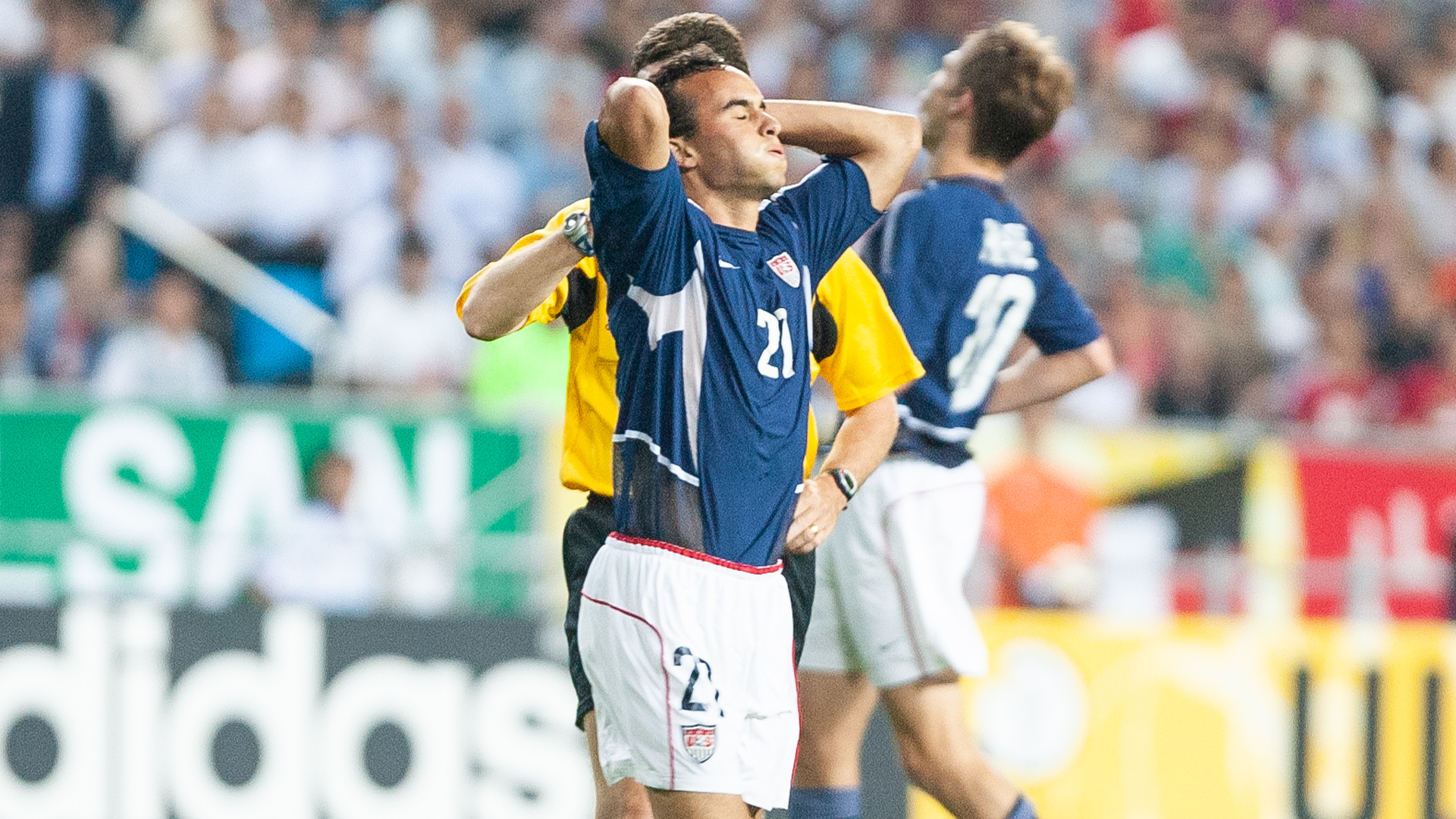

The 2002 FIFA World Cup, co-hosted by South Korea and Japan, remains etched in the memory of U.S. soccer fans, not just for the team's unexpected quarterfinal run but also for a moment of controversy that could have dramatically altered their fate. In the quarterfinal match against Germany, a clear handball by Torsten Frings inside the penalty area went uncalled, denying the U.S. a potential penalty and a chance to equalize. Germany went on to win 1-0, ending the USMNT's inspiring journey. But what if the referee had made a different decision? What if the USMNT was awarded the handball?
The Immediate Impact: A Penalty Kick
The most immediate consequence of a handball call would have been a penalty kick for the United States. Given the timing of the incident, well into the second half, a successful penalty conversion would have leveled the score at 1-1. This would have dramatically shifted the momentum of the game. Instead of desperately chasing an equalizer, the U.S. would have been on even footing, potentially forcing Germany to adopt a more cautious approach.
Psychological Shift
Beyond the scoreline, the psychological impact on both teams would have been significant. The U.S., energized by the equalizer, would have gained a surge of confidence, while Germany, rattled by the sudden turn of events, might have lost some of their composure. This mental edge could have proven crucial in the remaining minutes of regulation time or in extra time.
Tactical Adjustments
A tied score would have likely prompted tactical adjustments from both coaches. Germany, needing a goal to avoid extra time, might have committed more players forward, creating space for the U.S. to exploit on the counterattack. Conversely, the U.S. might have opted for a more defensive posture, seeking to frustrate Germany and capitalize on any mistakes.
Extra Time and Beyond
If the score remained tied after regulation, the game would have proceeded to extra time, and potentially a penalty shootout. With the "golden goal" rule in effect at the time, the first goal scored in extra time would have won the match. A USMNT victory in extra time or a penalty shootout would have sent shockwaves through the tournament, propelling them into the semifinals against South Korea.
Semifinal Showdown and Potential Final
The semifinal against South Korea would have presented a challenging but winnable opportunity for the U.S. While South Korea had the advantage of being a host nation, their path to the semifinals was paved with controversial refereeing decisions, leading to questions about the fairness of their victories. The USMNT, fueled by their quarterfinal triumph, might have been able to overcome the hostile atmosphere and secure a place in the World Cup final.
Legacy and Impact on US Soccer
A USMNT appearance in the 2002 World Cup final would have had a transformative effect on soccer in the United States. The increased exposure and national pride would have further fueled the growth of the sport, inspiring a new generation of players and fans. It could have led to increased investment in youth development programs, improved infrastructure, and a greater overall appreciation for soccer in American culture.
The Unknowable
Of course, all of this remains hypothetical. Even with a penalty awarded and converted, there's no guarantee that the U.S. would have won the game or progressed further in the tournament. Germany was a formidable opponent, and soccer is a game of chance as much as skill. However, the uncalled handball undeniably altered the course of the match and deprived the USMNT of a fair opportunity to compete for a place in the World Cup semifinals. The "what if" scenario continues to haunt U.S. soccer fans, serving as a reminder of the fine margins that often separate triumph from disappointment in the beautiful game. The controversy also underscores the importance of fair officiating and the impact that refereeing decisions can have on the outcome of major tournaments.